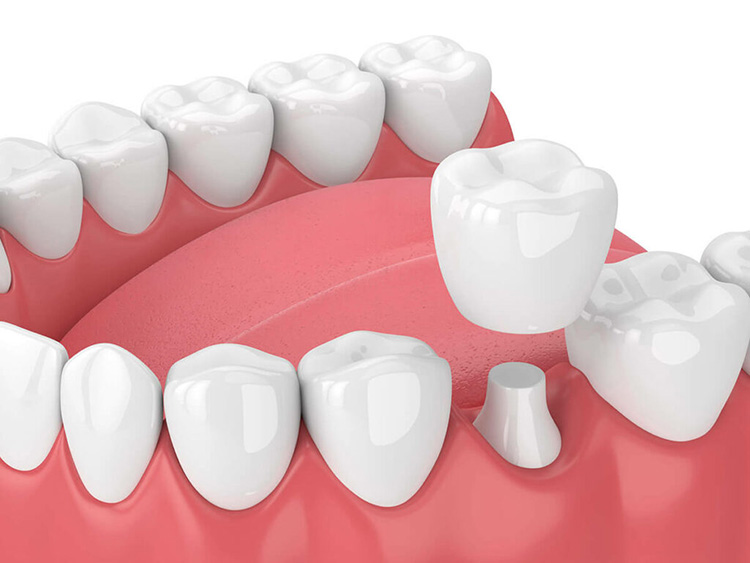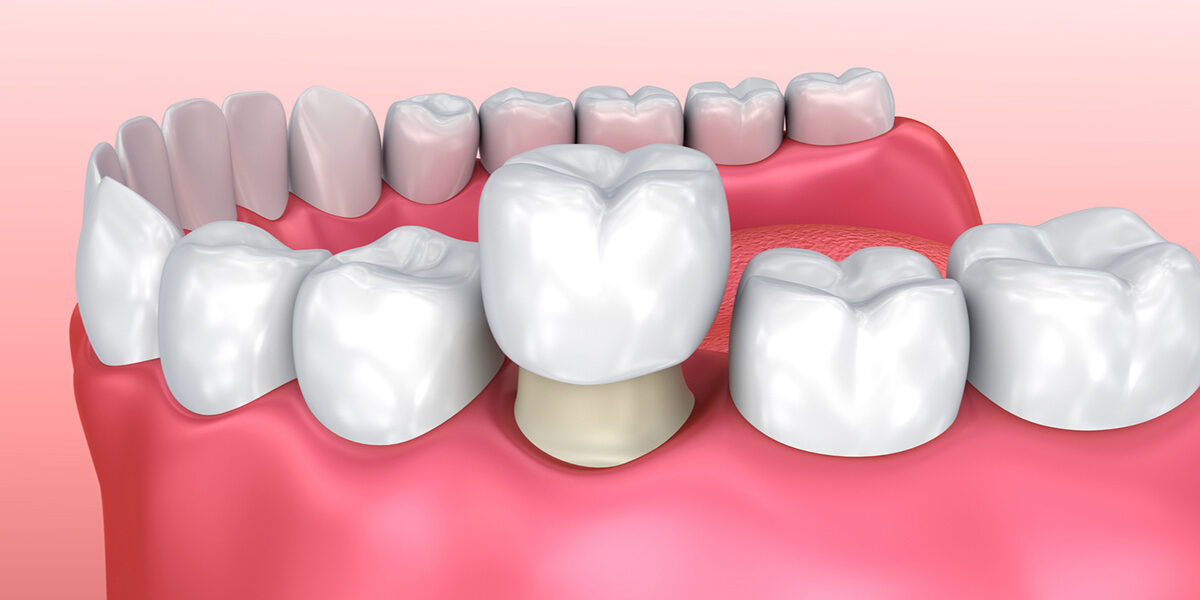The Top 4 Benefits of Dental Crowns
According to the Australian Dental Association, a crown is an artificial restoration that surrounds the remaining coronal tooth structure to restore missing tooth structure or is affixed to a dental implant. It is constructed from metal, ceramic, polymer, or a combination of these elements. It is held in place by either mechanical or luting cement.
A crown, often known as a “cap,” is a prosthetic tooth that is used to treat teeth when the structure is too weak or damaged for amalgam or dental composite fillings. When there isn’t enough healthy tooth left to support the filling, a crown can assist reinforce the tooth. Additionally, crowns can be utilized to secure bridges and prevent a weak tooth from shattering.
The appearance of crowns has been greatly improved by dental technology. These pieces of art look extraordinarily natural and fit exceptionally well when compared to the older bridges. The black margins at the gum line that were apparent with the traditional design of bridges and crowns are eliminated when utilizing a bridge or crown with a metal foundation covered in porcelain or using all porcelain material.
Dental bridge versus dental crown
A bridge, also known as a fixed partial denture, figuratively “bridges” the space left by one or more missing teeth with prosthetic teeth. Patients frequently misidentify a bridge as a crown and vice versa. Despite essentially comparable techniques, the fundamental distinction between crowns and bridges is actually their intended use. A bridge is used to entirely replace a missing tooth (or several missing teeth; bridges can replace up to three missing teeth in a row) and anchors to nearby teeth, as opposed to a crown, which covers a damaged tooth without extracting it.

Dental Crown Types
Crowns can be manufactured from a variety of materials, including metal, zirconia, porcelain, ceramic, composite resin, and even a mix of metals. Your dentist will decide which material to use for your crown depending on a variety of variables, including as the tooth’s position, the color of the natural teeth around it, and the functionality that the tooth that will receive the crown requires. Permanent crowns and bridges are the two most popular types of crowns.
Permanent Crowns: The most typical kind of dental crown is a permanent crown. They often employ better and stronger materials than temporary crowns because they are permanent. The normal lifespan of permanent crowns is five to fifteen years.
Temporary Crowns: Only metal and plastic are used to make temporary crowns. Because temporary crowns are only needed for a few weeks as a temporary fix while you wait for your permanent crown, these less expensive and inferior materials are used. Your tooth is covered by the temporary crown using an adhesive that may be removed with ease.
A Basic Process
The procedure for a dental crown can be completed in one or two appointments.
You will have two appointments with your dentist if the process takes more than one day. X-rays or molds of your mouth and teeth may be required as preparation for this treatment. Your tooth’s enamel will be filed down, and an impression will be produced before being sent to the lab to be turned into a permanent crown.
increased naturalness
No need to make an impression
You don’t need a temporary crown.
There is no chance for human error when making a crown.
last up to 30 years longer than traditional crowns
Metal alloys, composite resin, and a porcelain-and-metal alloy are among the materials utilized to create dental crowns. However, some crowns are made from a solid ceramic block. They are therefore nearly as durable as dental enamel. They avoid the darker edges of crowns with a metal foundation and have the appearance and feel of a natural tooth.
Major Advantages of Dental Crowns
Strengthen your teeth
Don’t let your fragile teeth break.
Take care of a stained tooth or implant.
Enhance the look of your smile
A range of materials that can be matched to your natural teeth
Strong and resilient, lasting for five to thirty years
Schedule a consultation with Oakstone Dental if you believe you would be a suitable candidate for a dental crown.







